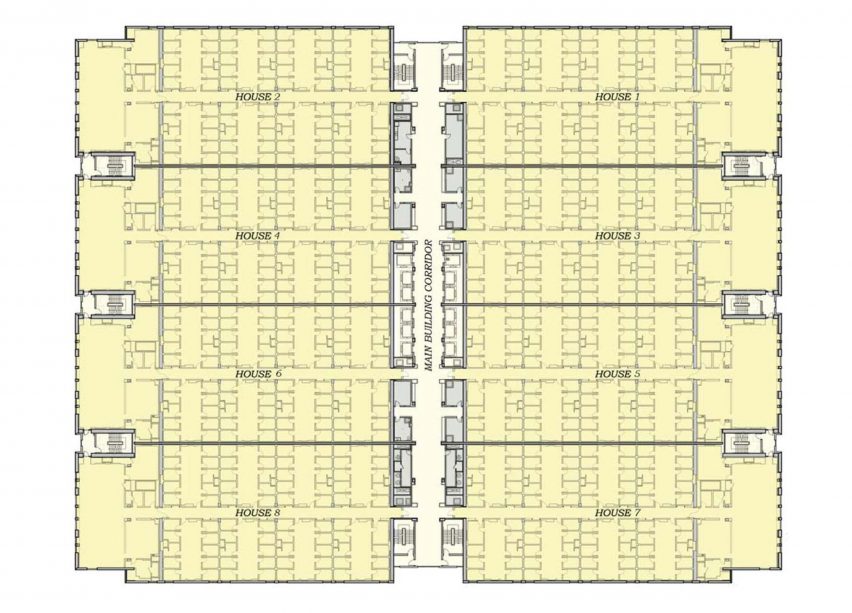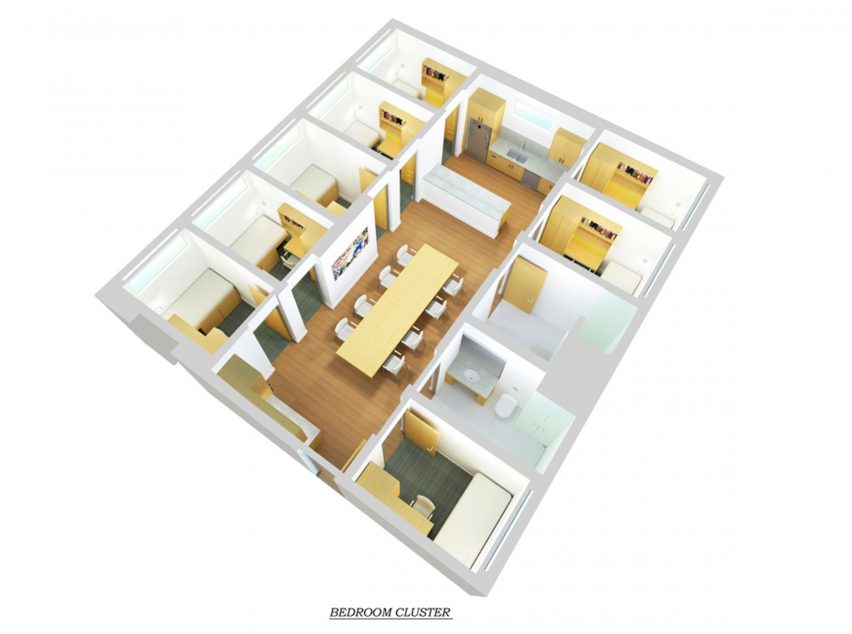
Architect resigns over mostly windowless Munger Hall dormitory at University of California
Architect Dennis McFadden has stepped down from a University of California committee in protest over designs for a university dormitory at its Santa Barbara campus where over 90 per cent of its 4,500 students would reportedly live in windowless rooms.
Named Munger Hall, the University of California Santa Barbara student housing would measure 1.68 million square feet (156,000 square metres) and house up to 4,500 students, according to local newspaper Santa Barbara Independent.
McFadden resigned from his role as a consulting architect of 15 years on the university's design review committee over the project, saying he was "disturbed" by the design of the building, The Washington Post reported.
Munger Hall was conceived by billionaire investor Charles Munger, who donated $200 million to the project, which has an overall budget of about $1.5 billion.
Majority of students to live in windowless rooms
While the gigantic Munger Hall would have fourteen entrances and exits, 94 per cent of students living in it would reportedly be in windowless rooms. The single-occupancy bedrooms would instead feature virtual windows that would simulate sunlight.
Each of the nine residential floors in the dormitory would have eight "houses", with eight separate "suites" organised around a communal kitchen and living area. The top floor would feature a one-acre courtyard with "social pods" and seating areas.

In his resignation letter, McFadden called the design "unsupportable from my perspective as an architect, a parent, and a human being".
"An ample body of documented evidence shows that interior environments with access to natural light, air, and views to nature improve both the physical and mental wellbeing of occupants," he wrote.
"The Munger Hall design ignores this evidence and seems to take the position that it doesn’t matter."
No other project "potentially more destructive to the campus"
McFadden said he left the committee as there was no possibility of making changes to the dormitory's design, according to the Santa Barbara Independent.
"The design was described as 100 per cent complete, approval was not requested, no vote was taken, and no further submittals are intended or required," he said.
"Yet in the nearly 15 years I served as a consulting architect to the DRC, no project was brought before the committee that is larger, more transformational, and potentially more destructive to the campus as a place than Munger Hall."
McFadden also pointed out that the current largest single dormitory in the world, Bancroft Hall at the US Naval Academy, houses only 4,000 students and is spread over multiple wings with more than 25 entrances.
If this report is true, this design is a grotesque, sick joke — a jail masquerading as a dormitory. No, design isn’t up to billionaire donors. How far UCSB has fallen since the days when it had architects like Charles Moore. https://t.co/ERFIzAz5jZ
— Paul Goldberger (@paulgoldberger) October 29, 2021
Pulitzer Prize-winning American architecture critic Paul Goldberger also slated the Munger Hall project online, tweeting: "If this report is true, this design is a grotesque, sick joke — a jail masquerading as a dormitory."
"No, design isn’t up to billionaire donors," he added. "How far UCSB has fallen since the days when it had architects like Charles Moore."
Virtual windows to have circadian-rhythm control system
Munger, who conceived the building, is the vice chairman of Warren Buffett's Berkshire Hathaway conglomerate and has no formal architecture training.
The detailed design of UC Santa Barbara building is being carried out by VTBS Architects, which is the architect of record on the project.
"This design emanates from Mr Munger's research and iterative processes to devise a transformational approach to student housing," VTBS Architects managing principal Navy F Banvard told Dezeen.
"While the single occupancy bedrooms afford each student his/her private space, every effort has been made to encourage student life co-living and collaboration."

The lack of natural light inside the majority of the students' rooms was one of McFadden's critiques of the project, but Banvard believes this is unfounded.
"All of the single-occupancy bedrooms have either a conventional window or a 'virtual' window," he said.
"All virtual windows will have a fully programmed circadian rhythm control system to substantially reflect the lighting levels and color temperature of natural daylight."
"Circadian rhythm lighting is already found in many types of buildings," Banvard added. "All of the common areas and amenities, including the Great Rooms and Kitchens within each House, have significant access to natural light."
Munger has previously contributed buildings to other campuses, including Stanford and the University of Michigan.
The main image of Munger Hall is courtesy of University of California Santa Barbara.